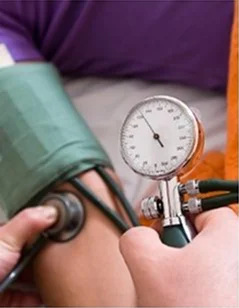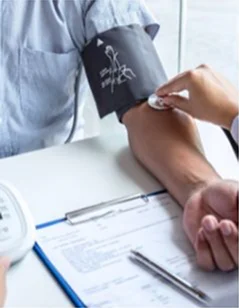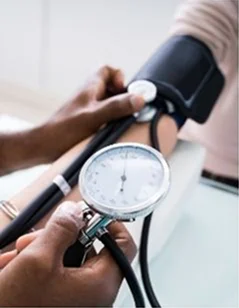Hypertension or high blood pressure can occur due to several reasons. First, it strains the blood vessels throughout the body, and as a result, distress can occur. Moreover, a high blood pressure problem, in the long run, can lead to serious health issues. It may cause heart strikes and other diseases. However, sometimes, there is a sudden spike in blood pressure, and it needs to be attended immediately. It may also cause symptoms that are not generally under chronic hypertension.
In several cases, people had immediate damage to the organs, including the brain, heart and kidneys. Therefore, we can refer to it as a hypertension emergency that can take one's life. You must know what you should do in such an emergency. It can help you save a life and keep you from life-threatening situations.
Also Read: The Link Between High Blood Pressure And Pain
Reasons For High Blood Pressure
If you're worried about high blood pressure, it's important to understand the factors that contribute to this condition. Here are some key considerations to keep in mind:
- Obesity: Being overweight or obese is a major risk factor for high blood pressure. If you're carrying extra weight, losing even a few pounds can help lower your blood pressure.
- Salt Intake: Too much salt in your diet can also lead to higher blood pressure. Be mindful of how much salt you consume and try to limit your intake to no more than 2,300 milligrams per day.
- Lack of Exercise: Physical activity is essential for maintaining a healthy blood pressure. Aim for at least 30 minutes of moderate-intensity exercise most days of the week.
- Alcohol and Caffeine: Drinking too much alcohol and caffeine can also contribute to high blood pressure. If you enjoy these beverages, consume them in moderation.
- Irregular sleep Patterns: Poor sleep habits can affect your blood pressure as well. Try to establish a regular sleep routine and get at least 7-8 hours of sleep each night.
- Age-Related Factors: As we get older, our risk for high blood pressure increases. It's important to monitor your blood pressure regularly and work with your healthcare provider to manage this condition as needed.
By keeping these factors in mind and taking steps to address them, you can help manage your blood pressure and reduce your risk of related health problems.
When to See an ER For Hypertension?
If you are someone who frequently or occasionally suffers from high blood pressure, it can be difficult to determine when to seek emergency medical care. However, it is crucial to know when to visit an ER, as high blood pressure can lead to organ failure and other severe health problems. Here are some situations in which you should immediately seek medical attention from an ER:
- Excessively High Blood Pressure
If you experience a sudden spike in your blood pressure, such as reaching 180/120, without any organ damage or symptoms, it can be a critical situation. In such cases, you may want to wait for 5 minutes and recheck your blood pressure levels, as it could be a temporary spike. However, if your blood pressure levels do not return to normal, it is crucial to seek immediate medical attention from an emergency room (ER).
If your blood pressure level is higher than 180/120 and you experience symptoms such as blurred vision, severe headache, and chest pain, it is crucial to seek medical attention immediately. High blood pressure at such levels can lead to severe health problems such as heart attack, stroke, and kidney failure. Therefore, getting medical attention is essential to prevent further complications.
- If You Cannot Check it Yourself
Many emergency guides assume that you have a blood pressure (BP) monitor at home to check your BP levels. However, the reality is that the average person may not be able to purchase a manual BP checking machine, which could be an automatic device or a device with a pump and cuff. Although digital BP readers are considered reliable, they are not readily available household appliances. Therefore, it is important to seek medical attention from a healthcare professional or emergency room (ER) if you experience high blood pressure and do not have a BP monitor at home.
If you do not have a blood pressure (BP) monitor at home, you may try to check your BP levels with your fingers, which can be challenging. Checking your BP through your arteries with your fingers is not an accurate method, and it is always necessary to use a BP machine to check it correctly. Additionally, the available applications to check BP levels are not always reliable. If you are experiencing high blood pressure and do not have a machine to check it, it is crucial to seek immediate medical attention from an emergency room (ER) to avoid any severe complications.
- High Blood Pressure in 20+ Weeks of Pregnancy
Pregnancy often causes high blood pressure, which is known as gestational hypertension, and it's a prevalent condition. The blood pressure readings usually range from 140/90, but this condition typically resolves itself after 20 weeks of pregnancy.
In certain cases, a woman may experience persistently high blood pressure even after 20 weeks of pregnancy, which can lead to various health problems for both the mother and the baby. As a result, it's crucial to seek prompt medical attention from an emergency room.
Also Read: 6 Crucial Tips To Follow For Better Sleep At Night
What Will an ER Do?
If an individual experiences hypertensive emergency with high blood pressure, the emergency room staff will first determine the cause and then assess whether any organs have sustained damage before initiating treatment to lower blood pressure.
In addition to assessing the cause of hypertensive emergency, the emergency room staff may conduct an electrocardiogram to examine the patient's heart and an X-ray to evaluate their lungs. Further tests, such as a CT scan or a heart ultrasound, may also be performed. Once the patient has undergone these tests, the medical team will prescribe medications to safely lower their blood pressure.
Also Read: Is It Cold, The Flu, Or Allergies - What Are Your Symptoms?
Conclusion
There are various reasons why high blood pressure can cause organ damage, and there's no specific threshold for when to seek emergency medical attention. If you experience high blood pressure, seeking medical care immediately should be your top priority.



.webp)




%20(1).png)
.png)
%20(1).png)


%20(1).png)




%201.png)
